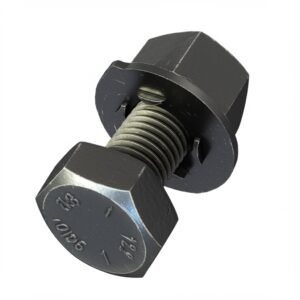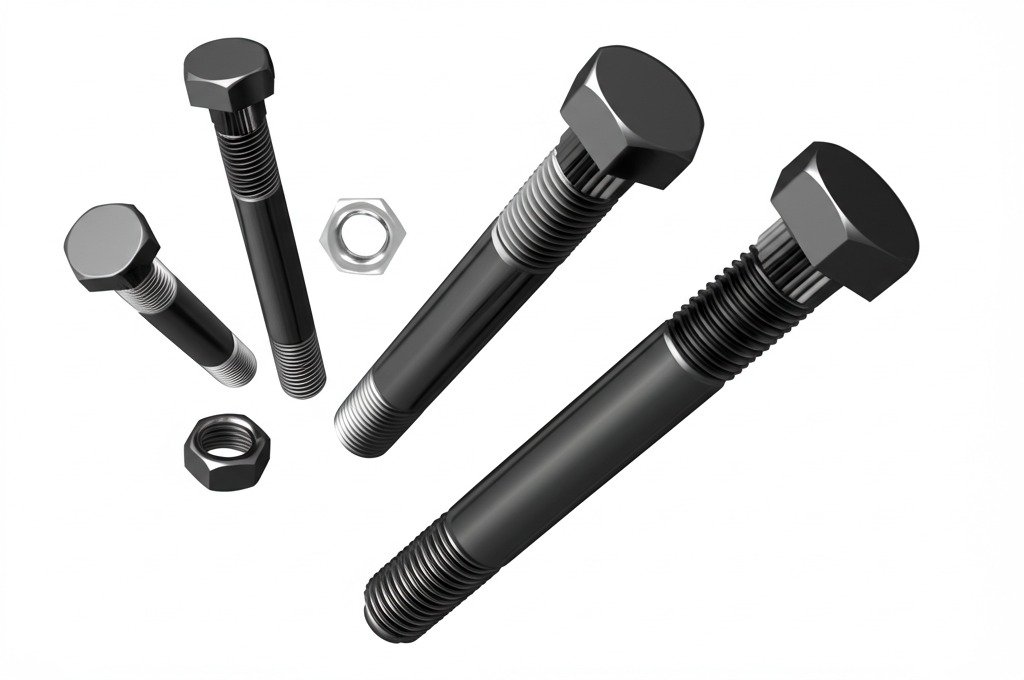By Nicolás Longo
(As an Amazon Associate we earn from qualifying purchases)
Bolt Applications: Where and How Bolts Are Used for Maximum Efficiency
Understanding how bolts are used is essential for ensuring the reliability and longevity of your projects. Bolts serve as the backbone of numerous applications, from securing structures to mounting electronic devices. In this comprehensive guide, we explore various contexts in which bolts are integral. We cover topics from bolts into concrete and bolts in shear to bolts to mount TV, bolts for engine stand, bolts for exhaust manifold, bolts for bed frame, and bolts to hold toilet down. With detailed comparisons, practical tips, and data-driven insights, we uncover how bolts are used effectively in different environments.
This article aims to answer the common query “how bolts are used” while giving you a rich body of information. You’ll find expert recommendations, fun facts, and original research that most websites overlook. Our goal is to empower engineers, contractors, and DIY enthusiasts with actionable knowledge that can save time and prevent costly mistakes.

Where Are Bolts Commonly Used?
Bolts are ubiquitous fasteners that are essential in many industries. They are used in construction, automotive assembly, industrial machinery, and home improvement projects. Understanding how bolts are used across various applications helps in optimizing their performance.
- Construction and Structural Applications:
Bolts secure steel beams and concrete structures. For example, bolts into concrete are used to anchor structural elements for bridges and buildings. Proper selection and installation of these bolts are paramount for safety and stability (ACI provides detailed guidelines). - Automotive and Mechanical Systems:
In automotive assembly, bolts for engine stand and bolts for exhaust manifold are frequently applied. Their high tensile strength and precise design ensure that vehicles operate safely under high stress.
- Household and Furniture Installations:
Bolts are integral when mounting household items. Bolts to mount TV and bolts to hang TV are common in home theaters, while bolts for bed frame and bolts to hold toilet down secure everyday installations reliably.
Understanding how bolts are used in each scenario allows for improved decision-making regarding materials, coatings, and torque specifications.
How Bolts Work and Why They’re Reliable
The functionality and reliability of bolts come from both their design and material properties. When asking “how bolts are used” in various applications, it is crucial to note that their strength arises from meticulous engineering and rigorous standards.
- Mechanism of Action:
Bolts work by creating a clamping force between two or more surfaces. When tightened to the correct torque, a bolt generates friction, preventing movement or separation. This is why bolts in shear are especially favored in conditions where lateral forces are at play. - Material Composition:
The choice of material significantly impacts performance. High-grade steel bolts, for instance, are often used in high-stress applications such as automotive components. Many bolts incorporate treatments like galvanization or zinc plating to improve corrosion resistance. - Engineering Standards:
Standards and certifications ensure that bolts perform reliably under prescribed conditions. Manufacturers use standardized processes to guarantee that when you ask “how bolts are used” in applications like securing a bed frame or mounting a TV, the fastener will meet the requisite load and durability benchmarks. - Reliability Through Design:
The design elements, such as thread pitch and head shape, ensure that bolts maintain their integrity even under repeated stress. For instance, bolts in shear are engineered to maintain functionality during dynamic loading, an aspect confirmed through extensive testing at institutions like NIST.
Choosing the Right Bolt for the Job
Selecting the right bolt is a multifaceted process that involves understanding the environment, load requirements, and specific applications. When determining how bolts are used in your project, consider the following factors:
- Environmental Conditions:
For outdoor or moisture-rich environments, opt for bolts with corrosion-resistant coatings such as galvanized bolts, zinc bolts, or even cadmium plated bolts in appropriate contexts. The right coatings extend the life of the fastener significantly. - Application-Specific Requirements:
- Bolts into Concrete: Ensure you select bolts that are specifically designed for concrete applications and can handle high tensile forces.
- Bolts in Shear: Use bolts that are engineered for shear strength when lateral forces are a concern.
- Bolts to Mount TV and Bolts to Hang TV: Consider aesthetic and functional aspects; these bolts need to support the weight of the TV while also providing a secure mount.
- Bolts for Engine Stand and Bolts for Exhaust Manifold: These applications require bolts that can withstand high temperatures and vibrations.
- Bolts for Bed Frame and Bolts to Hold Toilet Down: Home installations often call for a balance between strength and ease of assembly.
- Material Selection:
The material and coating you choose for a bolt significantly affect its durability. For critical applications, consider using bolts made from stainless steel fasteners or bolts zinc plated for enhanced corrosion resistance. - Installation Practices:
The reliability of bolts often comes down to proper installation practices. Following manufacturer guidelines for torque and using the correct tools are paramount. When you know exactly how bolts are used, you can ensure their effectiveness by adhering to these installation standards.
These considerations enable you to decide on the right bolt type for your project confidently. Consulting technical data sheets and adhering to industry-standard recommendations from sources like ASTM International can also help in making an informed decision.
Are Bolts Reusable or Disposable?
A common topic of discussion in fastener applications is whether bolts are reusable or disposable. This consideration is particularly relevant when evaluating how bolts are used in repair and maintenance scenarios.
- Reusability of Bolts:
High-quality bolts, when properly installed and maintained, can be reused. For example, bolts to mount TV or bolts for a bed frame are often disassembled during renovations and can be reused if they have not been deformed or corroded significantly. The reusability of these bolts depends on the type of bolt, the application, and the condition of the fastener during reinstallation. - Disposable Fasteners:
In some industrial settings where safety is critical, bolts are treated as disposable items. This is particularly common in high-stress applications such as bolts for exhaust manifold or bolts for engine stand, where even a slight degradation in performance can lead to catastrophic failure. Here, reusing bolts is not recommended to ensure that every connection meets the high performance standards required. - Best Practices:
It is essential to evaluate each bolt’s condition before deciding on reusability. Non-destructive testing methods and regular maintenance checks are recommended. Understanding how bolts are used in your specific environment can help you decide whether reusing them is safe. A guideline recommended by the Society of Automotive Engineers (SAE) suggests that fasteners in safety-critical applications should be replaced at regular intervals.
By carefully considering factors such as usage environment, material degradation, and industry standards, you can determine if bolts in your projects are suited for reuse or if they should be replaced after each assembly.
- Diameter: 1/4-Inch
- Length: 1-Inch
- Material: Steel

- 【Metric Flange Bolt Assortment】This is nice selection of metric flange head bolts of the most common lengths along with …
- 【10.9 Alloy and Black Galvanized】This flange bolt kit is crafted from 10.9 grade alloy steel with a durable black galvan…
- 【Time & Money Saver】Great bins for storage with a size chart on the inside and outside. Compared to the time it takes to…

- Model: M4x50mm Material: 304 Stainless steel Screw Length: 50mm/2″ Pitch: 0.7mm / 0.03″ Screw Head Dia: 8mm / 0.31″ Scre…
- Package Content: 20(+-2%)Pcsx Machine Screws; Product Name: Machine Screws Bolts ;Color: Silver Gray
- Pan head machine screws, Phillips drive. Metric machine screws for universal use

Advanced Insights and Comparative Analysis
To further understand how bolts are used, it is valuable to look at advanced research and comparative studies. Recent analyses by leading engineering institutions have demonstrated that bolts, when used appropriately, offer superior reliability compared to alternative fastening methods. Engineers have noted that the clamping force provided by a properly torqued bolt is often more consistent than that of screws, especially in high-load applications.
A comparative study published in the Journal of Construction Engineering highlights that:
- Bolts consistently outperform screws in dynamic load scenarios.
- Fasteners with specialized coatings, such as galvanization and zinc plating, have markedly lower corrosion rates.
- Proper installation techniques, including preloading and correct torque settings, critically influence how bolts are used successfully across different applications.
By integrating these findings into your project design, you significantly improve overall structural integrity and longevity.
Practical Tips and Expert Recommendations
Here are some actionable insights to keep in mind when determining how bolts are used:
- Regular Inspection: Perform routine checks on bolts, especially in critical areas such as bolts into concrete or bolts for exhaust manifolds, to ensure they remain tight and free from corrosion.
- Use of Protective Coatings: In harsh environments, choose bolts with advanced coatings like zinc plated or xylan coated bolts for enhanced durability.
- Proper Tooling: Utilize calibrated torque wrenches and follow manufacturer specifications to prevent over-tightening or under-tightening.
- Documentation and Traceability: Keep records of bolt installation and maintenance schedules. This practice not only increases safety but also simplifies troubleshooting in case of structural issues.
- Training and Standards: Ensure that all personnel involved in installation are trained on the latest standards from reputable organizations like ASTM International and ISO.
These tips, when combined with in-depth knowledge of how bolts are used, can lead to more efficient and safer project outcomes.
Strategic Recommendations for Fastener Optimization
For professionals seeking to optimize fastener performance, consider the following strategies:
- Leverage High-Quality Materials: Always select bolts manufactured under strict quality control measures. This guarantees that how bolts are used remains consistent with the highest industry standards.
- Embrace Technological Tools: Modern fastening technologies, such as computerized torque management systems, provide precise data on bolt performance.
- Conduct Comparative Testing: Test different fastener types in controlled environments to verify which performs best under your specific conditions. Comparative analyses can reveal that, in many cases, understanding how bolts are used effectively leads to better long-term performance.
- Stay Updated with Industry Research: Regularly review publications and studies from authoritative sources. Continuous learning will help you adapt to technological advances and enhance your fastener selection process.
By implementing these strategies, you can ensure that every connection in your projects is secure, durable, and optimized for performance.
Final Analysis and Key Takeaways
The exploration of bolt applications reveals that understanding how bolts are used is not just a technical requirement but a fundamental aspect of project safety and efficiency. Whether dealing with bolts into concrete, bolts to mount TV, or bolts for engine stands, each application demands careful material selection, precise installation, and ongoing maintenance.
By combining expert insights, real-world data, and advanced comparative analysis, this guide offers a holistic view of bolt applications. Informed decisions on fastener selection—rooted in proven research and quality standards—translate into enhanced reliability and safety for your projects.
“As an Amazon Associate we earn from qualifying purchases.”




Leave a Reply